
Dr. Gerardo Hernandez, 36, has been a doctor for the past six years. (Jackie Garcia)
Some patients from Southeast Los Angeles get impressed when they see their primary doctor walking into the exam room for the first time. More often, there is a level of distrust, especially from those who are not familiar with the healthcare system.
Gerardo Hernandez is a young man of Mexican roots with long hair and a peculiar smile. The distrust disappears when he gets into business and helps patients with their medical needs. To their benefit, the family doctor speaks fluent Spanish, knows the Latino culture very well, and is very understanding and respect of traditions when his patients share their homemade remedies and other alternatives to heal themselves.
Hernandez, 36, has been a doctor for the past six years, and he is proud to be working in South Gate, just a few miles from where he grew up in the neighboring city of Maywood.
Hernandez is the associate program director for the AltaMed Family Medicine Residency Program. He recognizes that becoming a doctor was a long and difficult road but also appreciates the network of mentors and guidance he received along the way.
He still gets emotional when he remembers the day he received the phone call of acceptance to study medicine at his number one choice: UC Davis. He was doing clinical research at a VA Long Beach Healthcare System.
"I remember being in my office, and I curled up in my chair, and my supervisor asked if I got in, and I said ‘yes,’" said Hernandez. "Then everybody else found out and came out of their offices and hugged me because they were also helping me and coaching me through the process."
He was in shock because he knew he wasn't the brightest student in class, yet he made it.

Finding guidance along the way
Hernandez said he was exposed to the medical world through his parents at a very young age, more out of necessity than by choice.
Hernandez's parents migrated from Mexico to the United States and became certified nurse assistants (CNAs). They had children at a very young age, and because they struggled economically to support the family, they made it very clear for Hernandez and his two sisters that education was a vital part of success.
Due to the lack of childcare, Hernandez had to go to his parents' work after his classes and would stay doing his homework in the clinic’s lunch rooms.
"And I got to see nurses and doctors that looked like me for the first time," said Hernandez, who was in fourth grade at that time. "I had never seen a brown doctor before and one time Dr. Juan Silva talked to me and gave me an article. He said this is what they read."
Hernandez thought it was the best thing that had happened to him. Not only was a Latino doctor talking to him, but he was also showing him options for a brighter future. The article explained science, biology, the human body and more.
While he wasn't the highest-performing student in elementary and middle school, once Hernandez was in eighth grade, he started doing much better academically. He was always a B and C student but rarely obtained an A. One of his teachers noticed his effort and encouraged him to keep up the good work in his transition to high school.
"Once in high school, I was like, I can get good grades, I can be on the honor roll … my parents always were the foundational rocks of our education and always taught us the importance of going to school," said Hernandez.
After graduating from St. John Bosco High School in Bellflower in 2006, Hernandez transferred to California State University, Long Beach (CSULB) to study microbiology. Once in college, he became disconcerted and got lost in the system again. He was placed in remedial English and the lowest math class because his standardized test-taking skills were not up to par.
"So I started really low, and it took me about six years to finish undergrad," he said.
The impostor syndrome started attacking him, and he questioned himself if he was up for the challenge. In his classes, there were not many students of color, which made him feel isolated.
In order to overcome his fear and anxiety, he started getting involved in clubs and organizations to connect with other students. While at CSULB, he became politically involved in advocating for bills that could bring universal health care to California, regardless of immigration status. He also helped found an organization for pre-med students to support each other by attending conferences and participating in programs related to Latinos in medicine.

AltaMed Clinic with medical staff.
Participating in those events and seeing medical experts who looked like him motivated him, again, to step up and get those A grades. He also learned to advocate for himself and started believing that his path to becoming a doctor was becoming a reality.
In 2012, he began at UC Davis, and after four intense years of medical school, he graduated. UC Davis is considered an Institution for Latino Physicians and at the time when Hernandez attended medical school there were about 20% of Latino students in medicine.
Although the courses were challenging, for him, however, the hardest part was leaving home, his parents and his girlfriend, but he knew he was on a mission and would soon be back.
Mentors are vital part of success
Hernandez is very grateful to different doctors and mentors who guided him along the way. He met Dr. Juan Silva, who co-founded Mosaic Family Care Medical Group, for the first time as a child and shadowed him in medical practices again during his college years. In med school he became a fan of Dr. Jorge Garcia, dean for Diverse and Inclusive Learning Communities at the UC Davis School of Medicine (SOM). His story of Mexican heritage, first-generation, and education hardship resonated with the med student. He felt identified.
“With people like them I found the motivation, I found the fire and the drive and I found people that could do it and like my dad said, 'if others can do it, you can do it too,'" he said.

Dr. Gerardo Hernandez works in South Gate. (Jackie Garcia)
During his years at UC Davis, he made many friendships with students whose stories were similar to his, mainly Latino students who understood the struggle. He also learned about the shortage of Latino physicians in California compared to the Latino population, which increased his interest in filling the gap.
Once at AltaMed, one of his main mentors has been Dr. Ana Karina Melgar, program director at AltaMed. They met years ago when he was doing his residence at Long Beach Memorial Hospital. He caught her attention when she noticed how much he cared for his patients and the extra effort he would put in the exam room.
She said that in order to have good doctors, mentorship and support along the way is crucial. She highlighted the importance of belonging, which starts in college. She recalls her own story. When she was a medical student at UCLA she joined Chicanos and Latinos of Community Medicine and then was exposed to the Latino Medical Student Association (LMSA).
"Before that, I had no idea what it meant to be a doctor," she said. "And for the first time, I saw a Latino doctor that had gone through similar things that I had, and also one that was Salvadorian."
Once she became a doctor she started providing support as much as possible to the newer doctors. She said it’s common to see other ethnicities who have doctors in the family and the support and mentorship come directly from them. The difficult part is when students of color and minorities try to break barriers by being the first ones in this field.
"That's why it is very crucial to make sure you have someone that can guide you, and then do not forget the people behind you, because they're looking for that support that you received," she said.
Hernandez said he's very proud to be a Latino doctor serving patients in the community where he grew up. A significant number of them are only older Spanish speakers.
He enjoys his work and recognizes he also learns new things daily. Whether it’s from a patient asking for remedies for a specific condition to those who enjoy sharing with him their homemade remedies like pomades, teas, worms and other unique methods of cures.
While he adheres to science and medicine, he says that ultimately, each person decides what works best for them.
"I consider myself inquisitive, curious and humble, and that's what we need with our community, he asserts. “We have to speak the language and we need to have cultural humility."

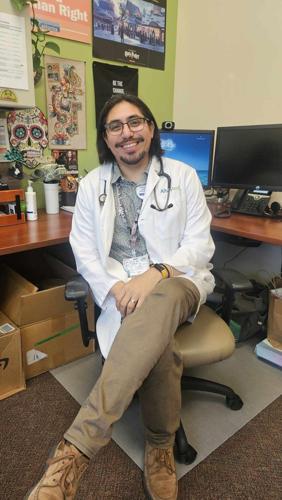
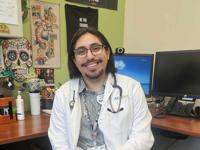

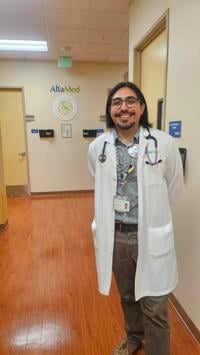

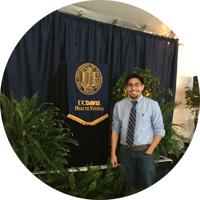
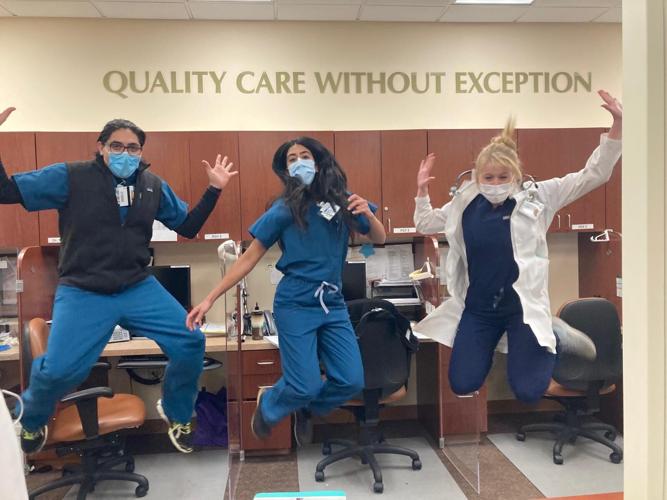
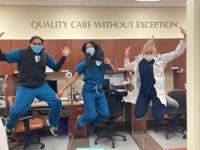

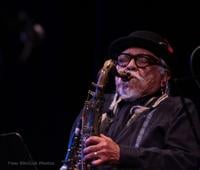

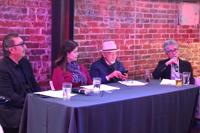



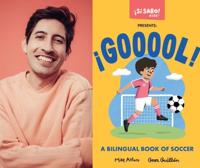
(0) comments
Welcome to the discussion.
Log In
Keep it Clean. Please avoid obscene, vulgar, lewd, racist or sexually-oriented language.
PLEASE TURN OFF YOUR CAPS LOCK.
Don't Threaten. Threats of harming another person will not be tolerated.
Be Truthful. Don't knowingly lie about anyone or anything.
Be Nice. No racism, sexism or any sort of -ism that is degrading to another person.
Be Proactive. Use the 'Report' link on each comment to let us know of abusive posts.
Share with Us. We'd love to hear eyewitness accounts, the history behind an article.